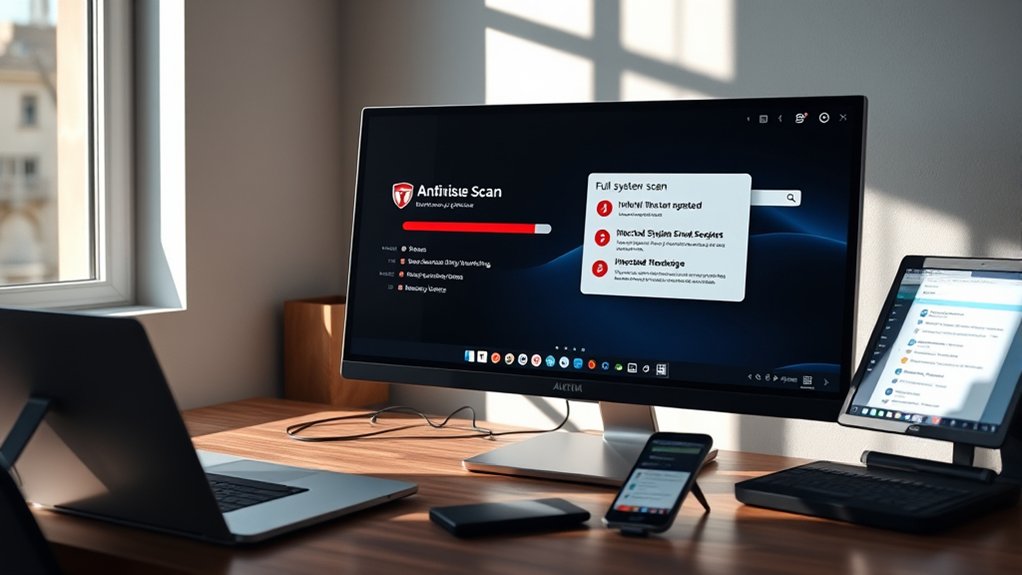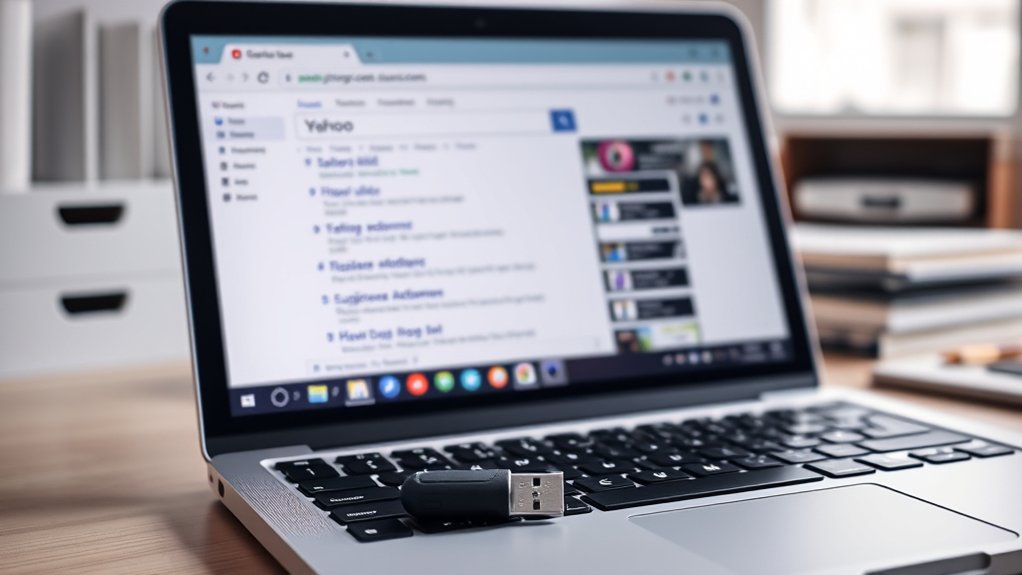To effectively remove the Yahoo Search Virus, users should first employ reputable antivirus software, such as McAfee or Norton, to perform thorough system scans. Detection and subsequent deletion of malicious programs are essential. Afterward, users must manage browser extensions, removing any unfamiliar ones and resetting search settings to preferred options. Regular updates and cautious browsing habits are recommended to prevent future infections, ensuring extensive protection. Further insights into additional preventative measures can be found in the extended guidelines.

The Yahoo Search virus poses a significant threat to users by infiltrating web browsers and altering their search settings without consent. This form of malware often manifests through unexpected redirects to Yahoo’s search engine, consequently disrupting normal browsing activities. Caused mainly by malicious extensions or software, this infection can likewise lead to intrusive advertisements as it tracks user data. The issue is prevalent across various browsers and devices, making it a widespread concern among internet users. To effectively address this malware, users should first employ reputable antivirus software, such as TotalAV, McAfee, and Norton. These programs are designed to perform thorough system scans, identifying and removing any malicious files associated with the Yahoo Search virus. It is critical for users to run a full system scan, as this guarantees that no latent malware remains, which could potentially lead to future infections. A follow-up scan post-removal is similarly recommended to verify that the problem has been adequately resolved. Additionally, ad-injection malware is commonly identified as a primary cause of these issues.
The Yahoo Search virus compromises user experience by hijacking browsers and redirecting searches, making it a widespread malware threat.
Using top free antivirus solutions, such as Avast or Bitdefender, can also provide effective real-time protection against potential threats. Removing malicious programs is crucial. Antivirus software can assist in detecting infected files. Quarantining or deleting these files can prevent them from spreading further; nonetheless, users should be cautious, as unintentionally deleting the wrong files may affect system functionality. This is why regular scans for ongoing protection against malware threats are essential.
Once the removal process is complete, restarting the system can strengthen stability.
Managing browser extensions is another vital step. Users should delete any suspicious or unrecognized extensions from their browsers to mitigate risks. It is advisable to only use extensions from reputable sources to prevent potential reinfection.
Moreover, individuals should adjust their default search engines back to preferred options, such as Google, verifying they remove Yahoo from the list if necessary.
Implementing these targeted strategies, from scanning to managing browser settings, can effectively remove the Yahoo Search virus, while simultaneously reinforcing users’ defenses against future malware infections. Regular updates to operating systems and antivirus software will further improve security.
Frequently Asked Questions
Can the Yahoo Search Virus Affect My Smartphone Browsing Experience?
The Yahoo Search virus greatly compromises smartphone browsing experiences. This malware infiltrates devices through malicious applications, often masquerading as legitimate tools.
Users frequently encounter unwanted search redirects to Yahoo, which raises privacy concerns as personal data, such as browsing history, may be collected.
Moreover, indications of infection include increased advertisements, slower device performance, and unexplained data usage.
Experts recommend caution during app installations and regular scans to mitigate these risks and improve user security.
Will My Saved Passwords Be Compromised During Removal?
The potential compromise of saved passwords during malware removal procedures remains a significant concern for users.
Experts note that reputable antivirus software is designed to eliminate malicious code without directly affecting sensitive information. Typically, users can select which files to quarantine or delete, providing an added layer of control.
Ensuring regular backups of critical data, including passwords, is advisable to mitigate risks during removal processes, safeguarding personal and financial information effectively.
Is There a Way to Prevent the Yahoo Search Virus in the Future?
To prevent the Yahoo Search virus, experts recommend implementing a proactive approach to online security.
Regular updates of antivirus software, such as Norton or Bitdefender, improve threat detection. Moreover, users should avoid installing free software from untrusted sources, often a vector for malware.
Regularly reviewing browser settings and extensions mitigates risks, as using incognito mode limits tracking.
Engaging these strategies greatly reduces susceptibility to infections, underscoring the importance of vigilant online behavior.
How Do I Know if Yahoo Search Virus Was Successfully Removed?
To determine if the Yahoo Search virus has been successfully removed, users should conduct thorough antivirus scans, ensuring no malware is detected.
Furthermore, they must verify that browser settings default to preferred search engines and that no unknown extensions persist.
Regular updates of both antivirus software and the browser are crucial.
Observing that redirects cease and search results display from the desired engine further indicates successful removal, as affirmed by cybersecurity experts.
What Other Viruses Could Be Related to the Yahoo Search Virus?
The Yahoo Search Virus is closely associated with various types of malware, including browser hijackers, adware, potentially unwanted applications (PUAs), and search engine redirectors.
These malicious programs typically alter browser settings, redirect searches, and display unsolicited advertisements. For instance, browser hijackers manipulate search queries, whereas adware often overwhelms users with pop-up ads.
Experts highlight the importance of maintaining updated antivirus and malware removal tools to mitigate risks linked to such infections effectively.









